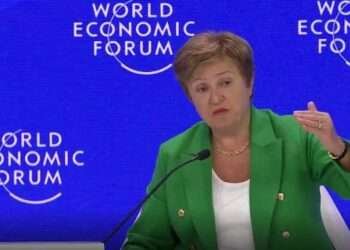An economist, Dr. Adu Owusu Sarkodie, who duets as a lecturer at the Department of Economics, University of Ghana, has said that the government must spend to revive the economy.
In his view, with the severe economic impact caused by the coronavirus pandemic, this is one of the surest ways to bring the economy back on track in the medium to long-term.
“Now, government must spend. Governments all over the world are spending. So we should not care so much about this expenditure. Maybe the only point that we must make is that government must spend efficiently. Many people criticise governments on social spending and increasing salaries but Ghana, like many countries, uses the expenditure approach to calculate our GDP. Consumption expenditure accounts for more than 65 per cent of GDP.
“So if government is paying salaries, government is spending on goods and services for people to spend on the demand side to increase the demand side of our economy to grow the GDP. So it is not a waste at all. I’m not sure that government spending on goods and services and wages and salaries is a waste. It is rather going to help boost the demand side of our economy which is needed at this time.”
Government high expenditure expected and justifiable
In the case of Dr. Sarkodie, the government’s expenditure hikes in the first three months of the year is reasonable following a report released by the Bank of Ghana (BoG).
Per the report which displayed the government’s financial standing in the first quarter of 2020 showed that expenditure increased by over GH¢5,867 million; indicating a 28.3 per cent increase as compared to the amount of money spent in 2019 over the same period.
The report further stated that government expenditure and net lending in the first quarter of 2020 totalled GH¢20,764.6 million (5.4% of GDP) compared with a programmed target of GH¢20,795.9 million (5.4% of GDP).
This was, however, higher than the out-turn of GH¢14,879.3 million in the corresponding period of 2019 by 28.3 per cent.
In justifying these economic turnouts, Dr. Adu Sarkodie said the high spending was expected, following the outbreak of the COVID-19 pandemic as well as preparations towards elections.
“All these are expected to rise in terms of their nominal figures. But the 2020 situation is peculiar because of two factors; the COVID situation and because it’s an election year and government machinery must run. Of course, the government in power will also have to spend on elections, for example. And all these things go into goods and services.
“I’ve also observed that the allocations to district assembly common fund have witnessed a surge in the amount. It’s all because of elections and this is something that we have been seeing consistently over the years that in every election year, the government overspends their expenditure. They spend more than they budgeted for. This is not something that we should encourage but sometimes too, it is difficult to talk about it now in times of COVID because at this moment, whether government revenue rises or not, the government must spend.”
On the aspect of the total wage bill, goods and services, and capital expenditures, they overshot their targets by 9.4 per cent, 16.2 per cent and 9.6 per cent respectively. However, expenditures on the remaining line items were less-than-programmed.
The report also added that compensation of employees, interest payment and grants and other government units together also constituted 75.3 per cent of total expenditures for the quarter.”

Earlier approved expenditure
Already, Parliament has approved about GH¢100 billion as expenditure for the 2020 financial year. The figure’s approval was to run from January 1, 2020, to December 31, 2020.
In the 2020 mid-year budget review, the Finance Minister Ken Ofori-Atta, said the country’s total expenditures, including arrears clearance, amounted to GH¢46,352 million or 12.0 per cent of GDP, compared with the programmed target of GH¢41,554 million or 10.8 per cent of GDP.
Mr. Ofori Atta in justifying said that the double shock of the coronavirus pandemic and a global economic recession resulted in a revenue shortfall of GH¢13.6 billion with unanticipated but necessary expenditures reaching an approximation of GH¢11.7 billion.
After these explanations on the floor of parliament, he requested for a supplementary budget of GH¢11.8 billion to support government’s expenditure for the rest of the year towards the implementation of various initiatives, geared towards strengthening the economy.





















